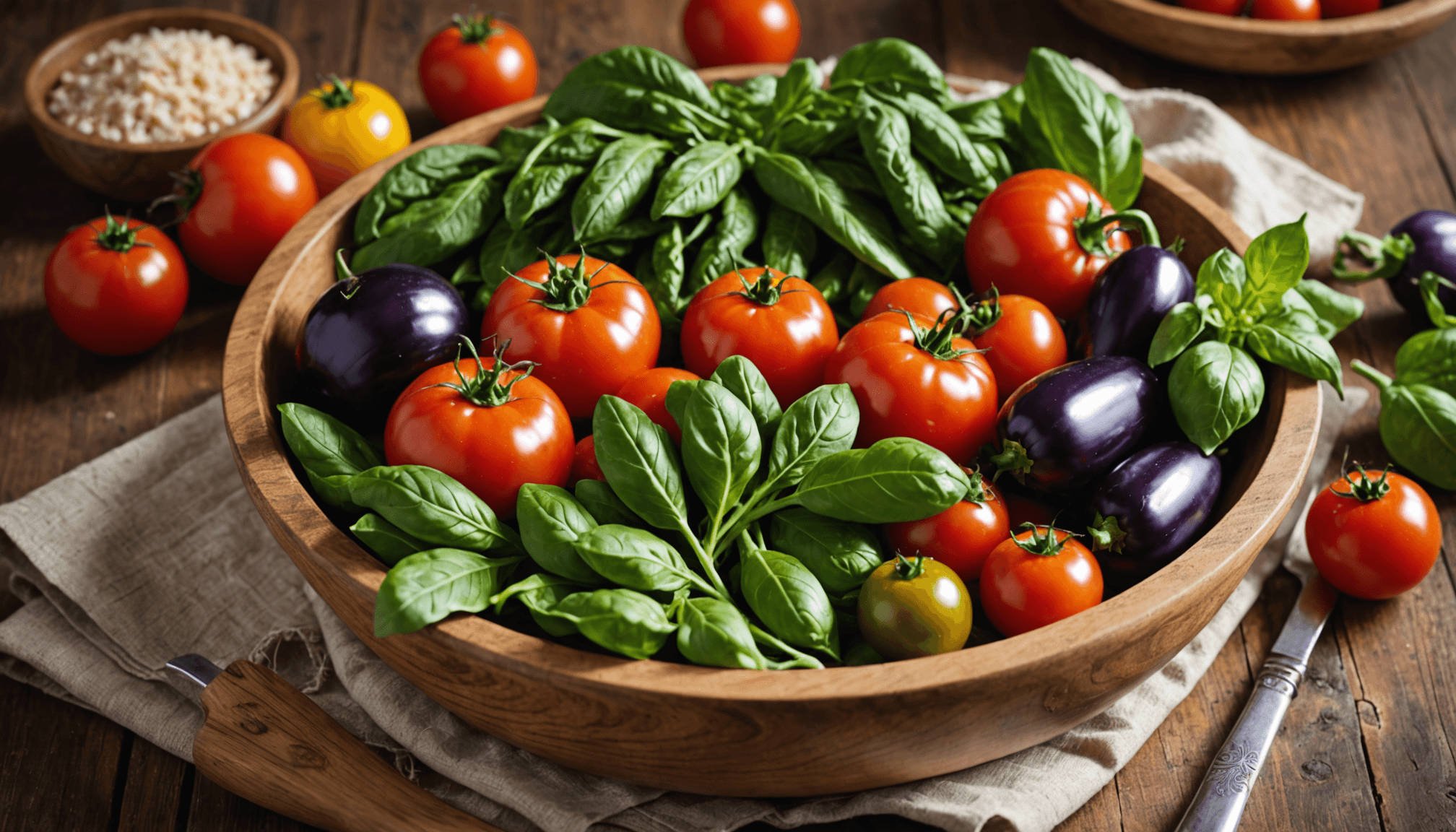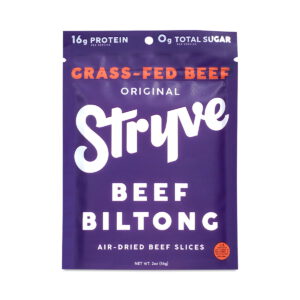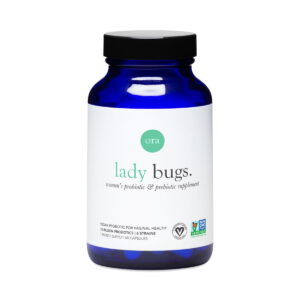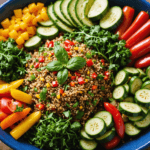- Healthy organic mediterranean dinners
- Benefits of the Mediterranean Diet
- Essential Ingredients for Mediterranean Cooking
- Meal Prep Tips for Busy Weeknights
- Flavorful Organic Recipes to Try
- Creating Balanced Plates: Sides and Salads
- Sustainable Sourcing for Organic Ingredients
When navigating the grocery aisles for your next nutritious meal, particularly if you’re focused on embracing the Mediterranean diet, it pays to adopt a strategic approach. Begin by outlining your shopping list based on the ingredients that form the backbone of healthy, organic Mediterranean dinners. By doing this, not only can you save money and time, but you can also ensure your meals are packed with flavor and nutritional benefits.
First and foremost, consider local produce. Not only is it often fresher, but it tends to have better flavor and can be more affordable than imported options. Visit your local farmer’s market or join a community-supported agriculture (CSA) program to stock up on seasonal vegetables like zucchini, eggplant, tomatoes, and bell peppers, all of which are vital components of Mediterranean recipes.
For whole grains, look for organic food options such as quinoa, farro, or whole-grain couscous. These grains are not only filling but also packed with fiber and protein, making them excellent choices for a wholesome dinner. When shopping for pasta, choose whole grain or legume-based varieties for added nutrition.
Don’t forget about your protein sources! Incorporate healthy plant-based proteins like lentils, chickpeas, and beans into your meals. These ingredients are staples in Mediterranean cooking and can be used in a myriad of dishes, from salads to stews. If you prefer seafood, focus on oily fish like salmon or sardines, which are rich in omega-3 fatty acids. Check for sustainability certifications on packaging to make informed choices that support the environment.
Regarding seasoning and flavoring, make sure to stock up on high-quality extra virgin olive oil, herbs such as basil, oregano, and thyme, as well as spices like cumin and paprika. This not only infuses your dishes with authentic Mediterranean flavors but also provides health benefits thanks to their antioxidant properties.
When it comes to shopping, online grocery platforms can be a convenient option, especially for those with busy schedules. However, it’s essential to prioritize safety when buying online. Always choose reputable retailers, check for user reviews, and ensure they have a clear return policy. Look for certified organic labels on products to make sure you’re getting the best quality ingredients.
Lastly, if you’re on a budget, take advantage of store discounts and loyalty programs. Buying in bulk can also save you money on pantry staples. Plan your meals around what’s on sale that week to maximize your grocery budget without sacrificing quality.
Benefits of the Mediterranean Diet
The Mediterranean diet is more than just a way of eating; it’s a lifestyle associated with numerous health benefits that have been backed by extensive research. This dietary approach, which emphasizes the consumption of fresh fruits, vegetables, whole grains, legumes, nuts, olive oil, and lean proteins, offers a variety of advantages for both physical and mental health.
One of the most significant benefits of the Mediterranean diet is its strong connection to heart health. Numerous studies have shown that adhering to this dietary pattern can reduce the risk of cardiovascular diseases. This is largely attributed to the high intake of monounsaturated fats present in olive oil, as well as omega-3 fatty acids found in fatty fish. Both contribute to improved cholesterol levels and reduced inflammation, which are crucial factors in maintaining a healthy heart.
Another key advantage is the support of weight management. The Mediterranean diet is rich in fiber from fruits, vegetables, and whole grains, which can increase satiety and reduce overall calorie intake. Unlike restrictive diets that may lead to yo-yo dieting, the Mediterranean approach encourages sustainable eating habits. This not only aids in weight loss but also promotes long-term weight maintenance.
Mental health is also positively impacted by this diet. Research has indicated that individuals who follow a Mediterranean diet may experience lower rates of depression and cognitive decline. The abundance of antioxidants from plant-based foods helps combat oxidative stress, while omega-3 fatty acids provide essential nutrients for brain function. This holistic approach to eating can promote happiness and well-being, making it a wholesome choice for enhancing quality of life.
In addition, the Mediterranean diet can play a role in reducing the risk of developing certain chronic diseases, including type 2 diabetes. The emphasis on complex carbohydrates and healthy fats rather than refined sugars and processed foods leads to better blood sugar control and insulin sensitivity. This is particularly beneficial for those looking to manage or prevent diabetes.
To illustrate the remarkable benefits of the Mediterranean diet, the following table summarizes its positive impacts on various health aspects:
| Health Aspect | Benefit |
|---|---|
| Cardiovascular Health | Reduces the risk of heart diseases due to healthy fats and reduced inflammation. |
| Weight Management | Aids in achieving and maintaining healthy weight through fiber-rich foods. |
| Mental Health | May lower rates of depression and cognitive decline through nutrient-rich foods. |
| Chronic Disease Prevention | Helps in managing blood sugar and reducing the risk of type 2 diabetes. |
Adopting the Mediterranean diet not only promotes physical health but also encourages a deeper appreciation for food as a source of joy and connection. This holistic approach, rich in organic food and balanced nutrition, highlights the importance of mindful eating and sustainable living practices. By making the Mediterranean diet a part of daily life, individuals can reap a multitude of long-lasting health benefits, making it an appealing choice for anyone looking to improve their dietary habits.
Essential Ingredients for Mediterranean Cooking
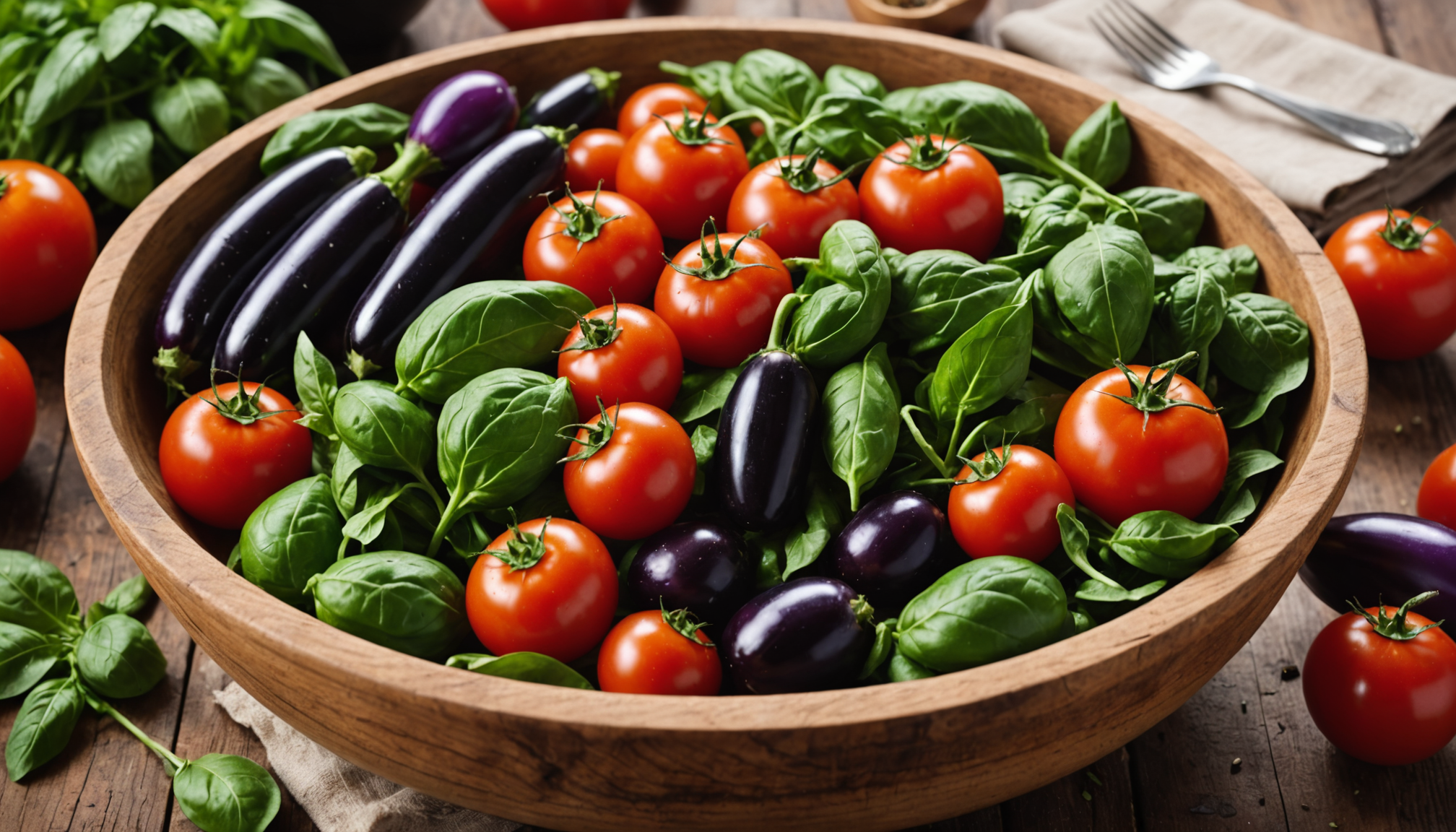
When it comes to creating delicious Mediterranean meals, investing in essential ingredients is key to achieving authentic flavors and optimal nutrition. As you shop, here are some top recommendations and practical tips to ensure you fill your cart with the best options for your healthy organic Mediterranean dinners.
Fruits and Vegetables: Focus on vibrant, colorful produce that forms the base of Mediterranean cooking. Look for seasonal, organic vegetables such as:
- Tomatoes
- Spinach
- Artichokes
- Bell peppers
- Eggplant
- Garlic and onions
These ingredients boast a wealth of vitamins and minerals, supporting a balanced diet. Shopping at local farmers’ markets is a great way to access fresh, organic options while supporting your community.
Healthy Grains: Grains are a staple in the Mediterranean diet, providing essential fiber and nutrients. Choose:
- Quinoa
- Farro
- Bulgur wheat
- Whole-grain pasta
Opting for whole grains over refined ones enhances the health benefits, including longer-lasting energy levels and better digestion.
Plant-Based Proteins: Incorporating legumes into your meals is both budget-friendly and health-promoting. Consider stocking up on:
- Lentils
- Chickpeas
- Black beans
These proteins are perfect for soups, salads, and sides, allowing you to create fulfilling dishes without breaking the bank.
Seafood: If you include animal products in your diet, opt for sustainable seafood options. Look for:
- Wild-caught salmon
- Sardines
- Mackerel
These types of fish not only provide essential omega-3 fatty acids but also support heart health, a fundamental principle of the Mediterranean diet.
Healthy Fats: High-quality extra virgin olive oil is a must-have for any Mediterranean kitchen. It’s rich in healthy monounsaturated fats and antioxidants. Use it for cooking, drizzling over salads, or dipping delicious whole-grain bread. Additionally, don’t shy away from:
- Avocados
- Nuts (almonds, walnuts)
- Seeds (chia, flaxseed)
These healthy fats enhance flavor and promote satiety, making your dishes both delightful and nourishing.
Herbs and Spices: To replicate authentic Mediterranean flavors, stock your pantry with a variety of fresh and dried herbs, such as:
- Basil
- Oregano
- Parsley
- Thyme
- Cumin
- Paprika
These ingredients not only enhance taste but also offer numerous health benefits due to their antioxidant properties.
Shopping Tips: Whether you’re shopping online or in stores, prioritize organic items when possible to minimize exposure to pesticides and maximize quality. Always read labels to ensure what you’re buying aligns with your dietary needs and preferences. If you’re shopping online, choose retailers with good reputations, read customer reviews, and be wary of deals that seem too good to be true. Ensure that perishable items are adequately packaged to maintain freshness during shipping.
Budgeting Advice: Take advantage of seasonal sales and local produce, which can significantly reduce costs while providing freshness. Buying in bulk, particularly for pantry staples like whole grains and beans, can further help stretch your grocery dollars. Consider meal planning around weekly sales to maximize savings while still enjoying diverse and flavorful meals.
With these strategic shopping tips, you’ll be well on your way to creating delicious, healthy organic Mediterranean dishes, making mealtime a delightful and nutritious experience for you and your family.
Meal Prep Tips for Busy Weeknights
 When facing busy weeknights, meal preparation can be a game changer, allowing you to enjoy the flavors of the Mediterranean without sacrificing your time or health. Embracing efficient strategies simplifies your cooking process and enhances your ability to stick to healthy habits even when life gets hectic.
When facing busy weeknights, meal preparation can be a game changer, allowing you to enjoy the flavors of the Mediterranean without sacrificing your time or health. Embracing efficient strategies simplifies your cooking process and enhances your ability to stick to healthy habits even when life gets hectic.
Start by dedicating a few hours on the weekend for meal prep. This approach lays a strong foundation for the week ahead. Cooking grains in advance, such as quinoa or farro, can save you valuable time during the busy evenings. Once cooked, these grains can be stored in airtight containers in the refrigerator, easily accessible for quick lunches or dinners. A simple grain bowl can be thrown together with sautéed vegetables, your choice of protein, and a drizzle of high-quality extra virgin olive oil, embodying the essence of the Mediterranean diet.
Chop vegetables and store them in clear containers to make them easily visible and enticing for snacking or incorporating into meals. Bell peppers, zucchini, and cherry tomatoes are not only colorful but also versatile ingredients that can be added to various dishes. Consider preparing a large batch of roasted vegetables, which can complement multiple meals throughout the week—toss them into salads, mix them with pasta, or serve them alongside grilled meat or fish.
Another effective strategy is to batch-cook legumes, such as chickpeas or lentils. These nutritious staples are fundamental in Mediterranean recipes and can be added to soups, stews, or salads to ensure that every meal is packed with protein and fiber. Utilizing a slow cooker or pressure cooker can make this task easy—simply throw in your legumes with seasonings and let the appliance do the work while you focus on other tasks.
In addition, consider assembling some of your meals in advance. Mason jar salads, for example, are fantastic for quick lunches. Layer ingredients starting with the dressing at the bottom, followed by hearty vegetables, grains, and leafy greens on top. This structure keeps everything fresh until you’re ready to eat. When you’re on the go, just grab a jar, shake it up, and enjoy a nutritious meal rich in organic food.
Don’t overlook the power of freezing. Preparing a double batch of your favorite Mediterranean stew or soup allows you to stock your freezer with homemade meals. This not only saves time but also ensures that you have wholesome and healthy recipes ready to heat up on particularly busy nights.
Finally, organize your spices and oils to encourage experimenting with flavors. Having a well-stocked spice rack makes it easy to infuse your dishes with the characteristic Mediterranean flavors that elevate ordinary meals. Ensure that staples like garlic, rosemary, and paprika are always on hand to enhance any dish with minimal effort.
“By failing to prepare, you are preparing to fail.” – Benjamin Franklin
With these meal prep tips, you can successfully navigate busy weeknights while enjoying the delicious benefits of the Mediterranean diet. Prioritizing your time in the kitchen enhances not only your culinary experience but also your commitment to healthy eating. Taking these steps allows you to create a variety of flavorful meals that ensure you stay nourished and satisfied throughout the week.
Flavorful Organic Recipes to Try
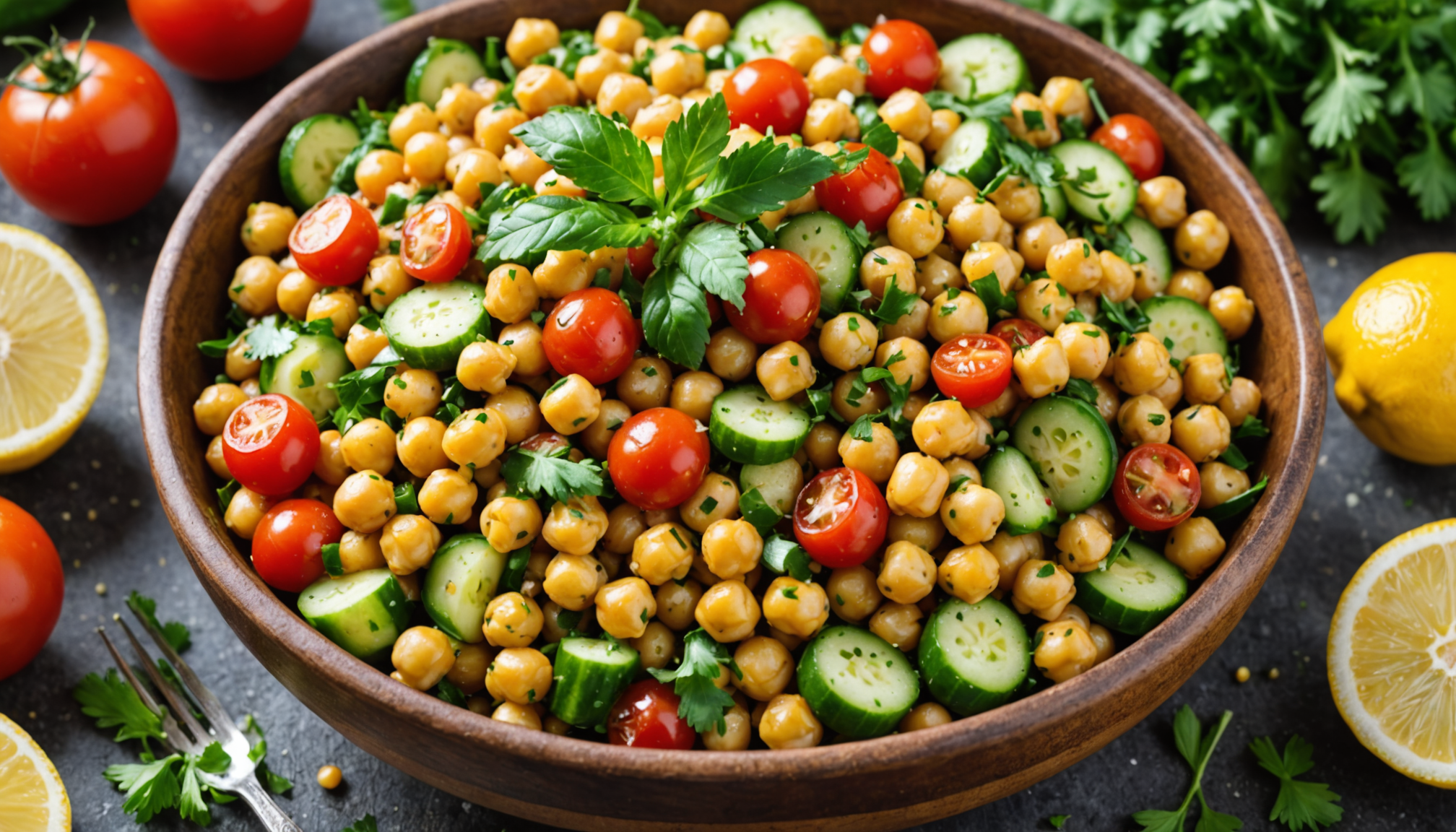 Think about bringing flavor to your dinner table with vibrant organic ingredients, and the Mediterranean diet offers a rich palette of possibilities. Start off with a classic Mediterranean Chickpea Salad—a refreshing mix of canned or cooked chickpeas, diced cucumbers, cherry tomatoes, red onion, and a handful of fresh parsley. Drizzle it with extra virgin olive oil, a splash of lemon juice, and a sprinkle of salt and pepper. This not only provides a burst of color but is also a powerhouse of nutrition, packed with protein and fiber.
Think about bringing flavor to your dinner table with vibrant organic ingredients, and the Mediterranean diet offers a rich palette of possibilities. Start off with a classic Mediterranean Chickpea Salad—a refreshing mix of canned or cooked chickpeas, diced cucumbers, cherry tomatoes, red onion, and a handful of fresh parsley. Drizzle it with extra virgin olive oil, a splash of lemon juice, and a sprinkle of salt and pepper. This not only provides a burst of color but is also a powerhouse of nutrition, packed with protein and fiber.
Consider trying Mediterranean Quinoa Bowls next. Cook quinoa and let it cool slightly before mixing it with roasted veggies like bell peppers, zucchini, and red onion. Add in some Kalamata olives and crumbled feta cheese for that authentic Mediterranean flair. Top it with your favorite vinaigrette for a satisfying meal that showcases the essence of organic food while being incredibly filling.
If you’re in the mood for something warm, whip up a Mediterranean Lentil Soup. Sauté onions, carrots, and celery in a little olive oil, then add garlic, diced tomatoes, and vegetable stock along with dried lentils. Season it with cumin, oregano, and a pinch of chili flakes for warmth. This soup is not only comforting but also an excellent source of plant-based protein, making it a supper that’s both hearty and nutritious.
For a delicious main dish, try Herb-Infused Grilled Salmon served with a side of steamed asparagus and a quinoa salad. Season the salmon with olive oil, fresh herbs like dill and parsley, and a squeeze of lemon, then grill until cooked through. The omega-3 fatty acids in the salmon combined with the green goodness of the asparagus embody the principles of the Mediterranean diet, promoting heart health while tantalizing your taste buds.
Don’t forget to explore the diverse world of stuffed peppers. Fill bell peppers with a mixture of brown rice, ground turkey or lentils, chopped tomatoes, and spices. Bake until the peppers are tender and the mixture is heated through. This recipe allows you to be creative, substituting ingredients based on seasonal availability, which is also a key tenet of healthy cooking.
These flavorful organic recipes not only provide a sensory delight but also serve as a canvas for learning about the ingredients you are using. Each meal offers a plethora of nutritional benefits and allows you to experiment with new flavors and textures. As you explore these dishes, think about how each ingredient contributes to not just your meal, but the larger context of your health and well-being. The Mediterranean diet encourages immersion in culinary traditions rich in history, health, and community.
- What is the Mediterranean diet?
- The Mediterranean diet emphasizes whole foods such as fruits, vegetables, whole grains, legumes, nuts, and healthy fats, particularly olive oil. It encourages a balanced intake of plant-based foods while moderately incorporating fish and poultry, making it a heart-healthy eating pattern.
- How can I find organic ingredients for Mediterranean cooking?
- Look for local farmers’ markets or join a community-supported agriculture (CSA) program to find fresh, organic produce. Many grocery stores also have organic sections with options for grains, legumes, and other staples integral to Mediterranean meals.
- Are there easy Mediterranean recipes for beginners?
- Absolutely! Simple recipes such as Mediterranean Chickpea Salad, Quinoa Bowls, and Lentil Soup are great starting points. These dishes are easy to prepare and require minimal cooking skills, while being nutritious and delicious.
- Can I meal prep Mediterranean dishes?
- Yes, many Mediterranean dishes can be made ahead of time and stored in the fridge or freezer. Recipes like soups, salads in jars, and grain bowls are great options for meal prep, allowing you to enjoy healthy meals throughout the week.
- What are some key spices and herbs in Mediterranean cooking?
- Common herbs and spices include oregano, basil, thyme, garlic, cumin, and paprika. These ingredients enhance flavor and offer various health benefits, making them essential for authentic Mediterranean dishes.
- Is the Mediterranean diet suitable for weight loss?
- Yes, the Mediterranean diet promotes healthy weight management as it focuses on whole, nutrient-dense foods that encourage satiety. With its emphasis on fiber and healthy fats, it’s a sustainable option for those looking to manage weight over the long term.
- How do I create balanced meals using Mediterranean ingredients?
- To create balanced meals, include a source of protein (like legumes or fish), a whole grain (such as quinoa or farro), and a variety of colorful vegetables. Add healthy fats like olive oil or nuts for a satisfying, well-rounded meal.
Creating Balanced Plates: Sides and Salads

Creating balanced plates filled with sides and salads is an essential element of Mediterranean cooking. To elevate your meals, think of sides not just as an accompaniment, but as integral components that enhance both flavor and nutrition. The Mediterranean diet encourages a vibrant palette of vegetables, grains, and legumes, ensuring that every meal is not only satisfying but also healthful.
Start by selecting a variety of colorful veggies. When shopping, opt for organic produce whenever possible to maximize health benefits and minimize pesticide exposure. Items like leafy greens, radishes, and cucumbers can serve as a refreshing base for salads, while roasted or grilled vegetables add depth to any dinner plate.
Consider making a hearty salad using arugula, spinach, or kale as your base. Toss in seasonal vegetables such as roasted red peppers, artichokes, and cherry tomatoes, then add a handful of nuts or seeds for crunch and healthy fats. Moreover, beans like chickpeas or black beans are great additions to turn your salads into protein-packed powerhouses. This way, you remain aligned with the principles of the Mediterranean diet, which prioritizes plant-based meals rich in nutrients.
For an appealing side dish, prepare a simple couscous or quinoa salad. Cook the grains according to package instructions, and once cooled, mix them with chopped cucumbers, parsley, mint, and a drizzle of lemon juice and olive oil. This not only serves as a light side but is also rich in fiber and can be stored in the fridge for several days, making it a great meal prep option for busy families.
When it comes to dressing, consider creating your own using extra virgin olive oil, vinegar, and herbs. This allows you to control the ingredients and keep it free from preservatives found in many store-bought options. Additionally, it emphasizes the essence of the Mediterranean diet, which values fresh and wholesome ingredients.
Exploring the variety of grains can also enhance your side dish repertoire. Farro, barley, or brown rice can be cooked and then mixed with herbs, nuts, and dried fruits for a delightful pilaf. Such dishes not only complement your main course but also bring a touch of sweetness and texture to your plate.
Don’t forget about dips! Traditional sauces like tzatziki can transform a platter of raw vegetables into a fantastic starter or side. Combine Greek yogurt, grated cucumber, garlic, and a dash of dill for a cooling and healthy dip. Serve it with whole grain pita or fresh cut veggies for a nutritious addition to your meal.
In terms of safety, always check the sourcing of your ingredients, especially when buying online. Look for certifications that ensure products are organic and ethically sourced. Reading user reviews and ensuring that your food is shipped promptly with proper cooling (for perishables) will help maintain the quality of your ingredients.
Budget-conscious shoppers should keep an eye on seasonal sales for produce and bulk items. Many grocery stores offer discounts on organic natural foods when they are in season or about to expire, making it an excellent time to stock up. Implementing these strategies into your grocery shopping will not only help create balanced, Mediterranean-inspired plates but also support a more sustainable lifestyle.
Sustainable Sourcing for Organic Ingredients

When it comes to sourcing ingredients for your Mediterranean meals, the emphasis on sustainability can make a significant difference for both your health and the environment. Begin by prioritizing organic food items, particularly when it comes to fruits and vegetables, which are often exposed to pesticides. Look for locally sourced organic produce at farmers’ markets or grocery stores that highlight their partnerships with local farms. This not only supports regional agriculture but also often ensures fresher and tastier options for your healthy recipes.
When selecting your greens, opt for those in-season; they frequently have lower prices and higher nutritional value. For example, spring greens, zucchini in summer, and pumpkins in fall are fantastic choices. Additionally, incorporating a variety of colors in your vegetable selection improves nutrient diversity—think of vibrant tomatoes, leafy greens, and roasted red bell peppers, staples in the Mediterranean diet.
For whole grains, explore organic versions of quinoa, brown rice, and whole grain couscous. When purchasing these staples, look for products that are packaged sustainably or from companies that emphasize eco-friendly practices. If possible, buy in bulk to reduce packaging waste and save money. This approach not only contributes to a healthier planet but also allows you to stock up without worrying about expiration dates.
Incorporating plant-based proteins like lentils and chickpeas is both economically smart and beneficial for your health. They are versatile, affordable, and packed with nutrients—perfect for soups, salads, and main dishes. Consider buying dried legumes and cooking them from scratch; they are generally cheaper and reduce packaging waste. Look for certifications like “Certified Organic” to ensure you’re choosing chemical-free options for your family.
As for seafood, always aim for sustainably caught varieties, which you can often find labeled in stores. Check for certifications like the Marine Stewardship Council (MSC) seal, which indicates responsible fishing practices. By selecting sustainably sourced seafood, you contribute to ocean health while nourishing your body with the omega-3 fatty acids essential to the Mediterranean diet.
While shopping online can offer convenience, it’s vital to practice safety to ensure quality. Research retailers thoroughly—check customer reviews and ensure they sell organic options from trusted brands. When items are delivered, inspect them upon arrival to confirm freshness, especially for perishable products like fruits, vegetables, and seafood. It’s beneficial to order these items from stores that guarantee timely delivery and proper temperature control during shipping.
For those on a budget, take advantage of seasonal sales and organic promotions at local stores or online. Look for coupons and loyalty programs that reward you for purchasing organic products. By planning your meals around sales, you can enjoy flavorful Mediterranean dishes while adhering to your financial limits. Remember, healthy eating doesn’t have to be expensive if you shop wisely.
Sustainable sourcing allows you to make informed decisions that benefit both your family and the planet. By prioritizing organic ingredients, seeking out local produce, and using your budget wisely, you can create delicious Mediterranean recipes that are not only nourishing but also enjoyable. Embrace the variety that comes with this vibrant cuisine, and let it lead you to a healthier lifestyle.
New Customers Offer!
Free Gift for the new customer
$24 Value, When You Subscrib Visit Thrive Market
